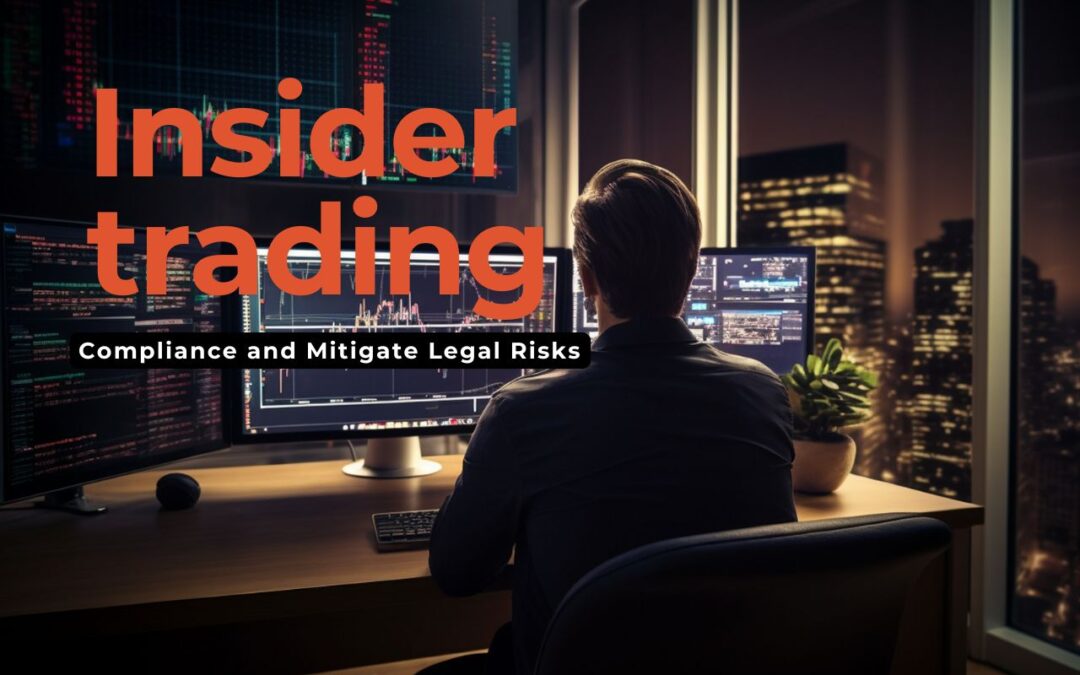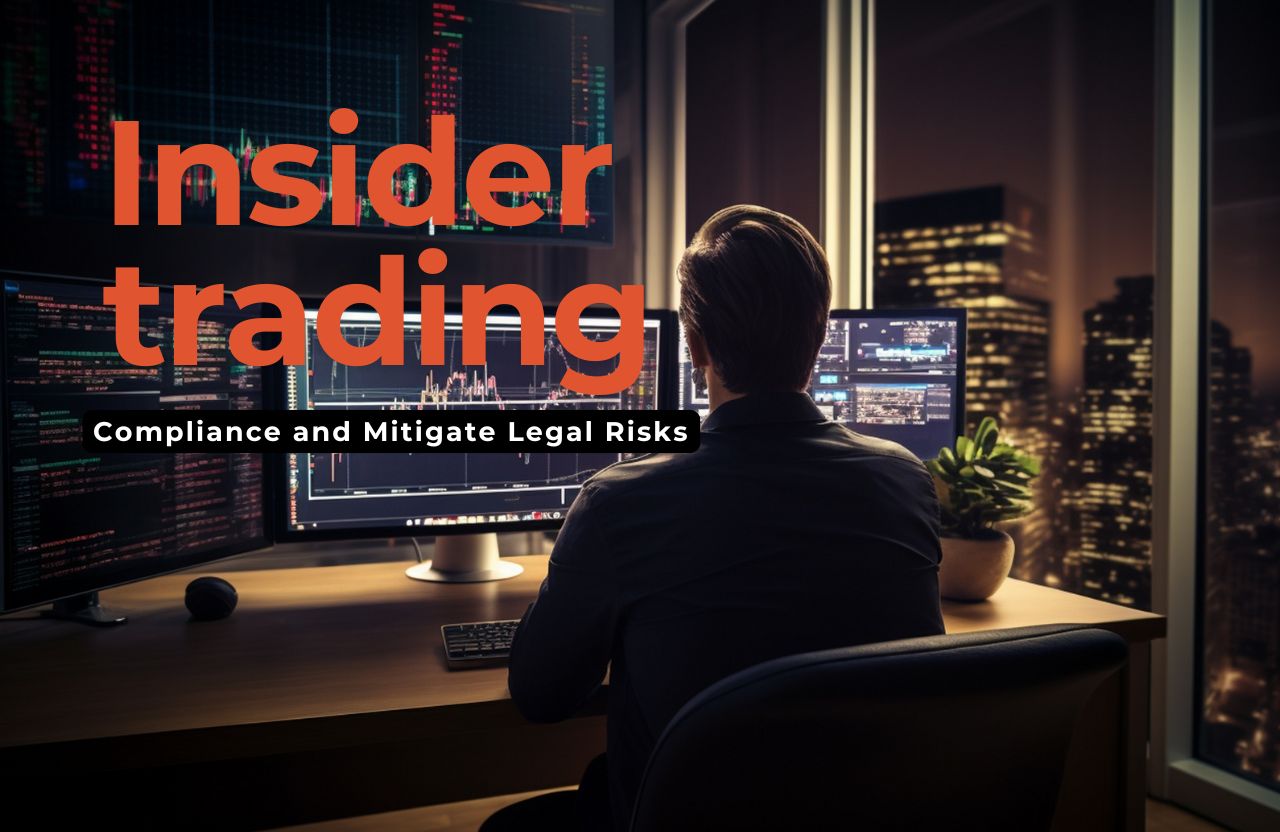Insider trading remains one of the most sensitive areas of corporate governance and regulatory oversight. It involves the buying or selling of a company’s securities by individuals with access to non-public, material information about the company. When misused, insider trading can severely damage a company’s reputation, invite heavy regulatory penalties, and undermine investor trust. Hence, companies must proactively manage insider trading compliance through structured frameworks, internal controls, and employee education.
This blog explores how companies implement insider trading compliance mechanisms, the importance of ethical leadership, and the preventive strategies adopted to avoid legal pitfalls. The aim is to highlight the essential practices businesses must adopt to foster transparency, protect sensitive information, and comply with regulatory expectations.
Understanding Insider Trading: A Brief Overview
Insider trading refers to the act of trading in a public company’s stock or other securities by someone who has access to non-public, material information about the company. While not all insider trading is illegal—executives may legally buy and sell shares provided they follow disclosure rules—illegal insider trading occurs when confidential information is used for personal gain or to benefit others before the information becomes public.
Regulatory authorities around the world monitor stock transactions and corporate disclosures to detect any suspicious patterns. Companies are expected to implement internal mechanisms to prevent illegal activities and to fully cooperate with enforcement investigations when necessary.
The Need for Insider Trading Compliance Programs
Corporate leaders, board members, employees, and consultants may all come into possession of material nonpublic information (MNPI). This could include upcoming mergers, quarterly earnings, product launches, regulatory approvals, or internal investigations. Without robust compliance policies, the risk of misuse increases dramatically.
Failing to manage insider trading effectively can lead to:
- Loss of investor confidence
- Negative media attention
- Legal and regulatory consequences
- Internal disruptions and workforce mistrust
A well-structured compliance framework helps mitigate these risks by promoting transparency, ethical conduct, and clear communication channels.
Core Elements of an Insider Trading Compliance Program
1. Policy Framework and Documentation
The first step in managing insider trading compliance is creating a comprehensive insider trading policy. This document serves as the foundation for internal control and outlines:
- Who is considered an insider
- What constitutes material non-public information
- What trading restrictions are in place
- How and when employees may trade in company securities
These policies are typically extended to employees, contractors, consultants, and in some cases, family members of insiders. Clear documentation helps minimize confusion and serves as a legal safeguard in the event of an investigation.
2. Trading Windows and Blackout Periods
Companies often implement trading windows—predetermined periods during which insiders are permitted to trade company securities. Blackout periods are imposed around the release of quarterly or annual financial results, or during any major corporate event that might significantly impact stock prices.
These controls prevent insiders from executing trades during sensitive times and ensure that all investors have equal access to material information.
3. Pre-Clearance Procedures
To further reduce the risk of improper trading, many organizations require insiders to obtain pre-clearance from a compliance officer before executing trades. This adds another layer of review and ensures that trades are not executed while the employee is in possession of MNPI.
Role of Compliance Teams in Oversight
The compliance department plays a central role in managing insider trading controls. Their duties typically include:
- Reviewing and approving insider trades
- Monitoring for abnormal trading behavior
- Keeping track of ongoing blackout periods
- Providing regular training and updates
- Investigating allegations or tips related to improper trades
In larger companies, this function may be supported by legal counsel, audit teams, and risk officers.
Employee Training and Awareness
A critical component of preventing insider trading is employee education. Companies must ensure that all employees—especially those in finance, strategy, legal, and executive roles—understand the rules around trading and the consequences of violations.
Training sessions may include:
- Examples of material non-public information
- Scenarios of what constitutes illegal insider trading
- Reporting procedures for suspected violations
- Disciplinary actions for non-compliance
Reinforcing ethical behavior and creating an open culture of transparency helps reduce the likelihood of violations.
Monitoring and Surveillance Mechanisms
Companies use monitoring systems to identify patterns in employee trading activity. While this does not involve active surveillance of individual actions, it allows compliance teams to flag suspicious trades based on timing, frequency, or volume.
Key red flags that may trigger a review include:
- Trades made shortly before a major announcement
- Unusual trading volumes in quiet periods
- Trades by employees who recently had access to confidential projects
If such red flags appear, internal investigations may follow, often in coordination with legal teams or external advisors.
Whistleblower Programs
Creating a safe, anonymous channel for employees to report suspicious behavior is another vital aspect of insider trading compliance. Whistleblower protections can help uncover misconduct before it escalates into a regulatory issue. Organizations should have:
- Clear procedures for submitting complaints
- Confidential handling of reports
- Protections against retaliation
- A defined process for internal inquiry
Encouraging employees to report unethical behavior strengthens the integrity of the entire compliance system.
Role of Senior Leadership and the Board
Leadership plays a defining role in setting the ethical tone of an organization. When board members, executives, and other top officials adhere strictly to compliance policies, it sends a powerful message to the rest of the company.
Boards also have oversight responsibilities. They must:
- Ensure that compliance policies are up to date
- Evaluate reports on insider trading risks and controls
- Support timely audits and investigations
- Champion a culture of accountability
Failure at the leadership level often translates into organizational lapses, making leadership commitment indispensable.
Periodic Audits and Policy Updates
Insider trading policies must evolve with regulatory developments and organizational changes. Companies should regularly:
- Review and update compliance policies
- Audit insider trading logs and approvals
- Assess training effectiveness
- Adjust trading windows based on new business activities
Audits act as preventive checks and show regulators that the company is serious about enforcing its own rules.
Legal Consequences of Insider Trading Violations
Illegal insider trading can have severe consequences, both for the individual and the organization. Regulators may impose:
- Financial penalties
- Criminal charges
- Disqualification from board positions
- Reputational damage in public disclosures
Organizations that fail to detect or report insider trading can also be held accountable for lax oversight, increasing their exposure to fines and sanctions.
Industry Statistics and Regulatory Trends
Recent regulatory trends show a growing focus on insider trading, especially with the increasing volume of digital communication and remote work. According to market regulators in multiple jurisdictions:
- Hundreds of insider trading cases are investigated each year
- A significant number involve tipping information to friends or family
- Insider trading enforcement actions have increased by over 30% in the past five years
Such statistics indicate the heightened importance of robust insider trading compliance measures.
Future Outlook: Technology, Ethics, and Transparency
As businesses become more data-driven and information flows faster, the complexity of managing insider trading compliance will increase. Companies may adopt advanced analytics, real-time monitoring tools, and artificial intelligence to enhance their surveillance and reporting mechanisms.
At the same time, fostering a strong culture of ethics, transparency, and open communication will remain critical. Compliance is not just a legal function—it is a core part of corporate responsibility.
Conclusion
Managing insider tradings compliance is more than just a legal requirement—it’s a matter of trust, ethics, and corporate resilience. Companies that invest in clear policies, effective training, strong leadership, and proactive monitoring position themselves to protect shareholder value, avoid legal pitfalls, and foster a culture of transparency.
As regulatory expectations evolve and technology advances, so too must insider tradings compliance programs. For businesses that prioritize these safeguards, the result is not only lower risk—but also stronger integrity in the eyes of investors, employees, and the public.













